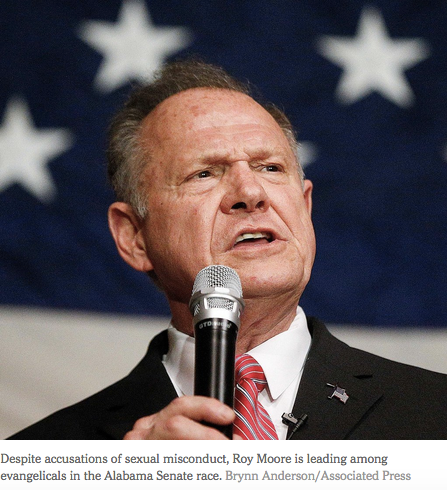. . .
Yet the support being given by many Republicans and white evangelicals to President Trump and now to Mr. Moore have caused me to rethink my identification with both groups. Not because my attachment to conservatism and Christianity has weakened, but rather the opposite. I consider Mr. Trump’s Republican Party to be a threat to conservatism, and I have concluded that the term evangelical — despite its rich history of proclaiming the “good news” of Christ to a broken world — has been so distorted that it is now undermining the Christian witness.
Just the other day I received a note from a friend of mine, a pastor, who told me he no longer uses the label “evangelical” to describe himself, even though he meets every element of its historical definition, “because the term is now so stained as to ruin my ability to be what evangelicalism was supposed to be.”
Another pastor who is a lifelong friend told me, “Evangelical is no longer a word we can use.” The reason, he explained, is that it’s become not a religious identification so much as a political one. A third person, who heads a Christian organization, told me the term evangelical “is now a tribal rather than a creedal description.” In October, the Princeton Evangelical Fellowship, a campus ministry for more than 80 years, changed its name to the Princeton Christian Fellowship. “We’re interested in being people who are defined by our faith and by our faith commitments and not by any sort of political agenda,” according to Bill Boyce, who has led the campus group for decades.




